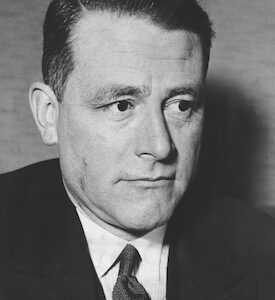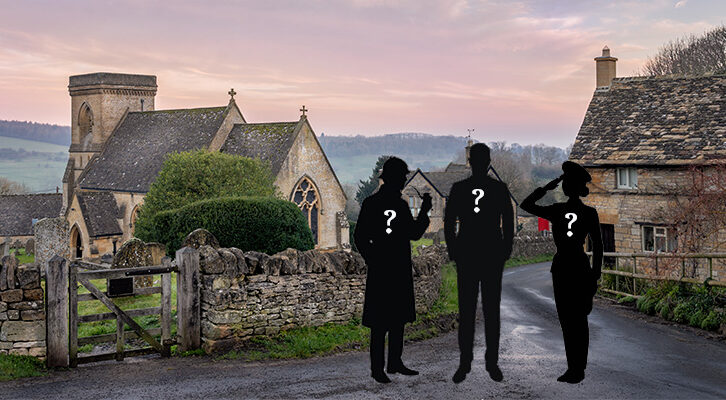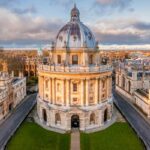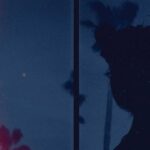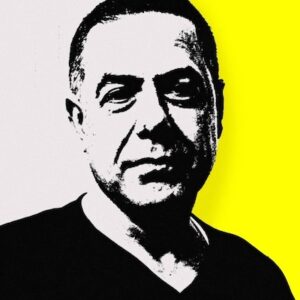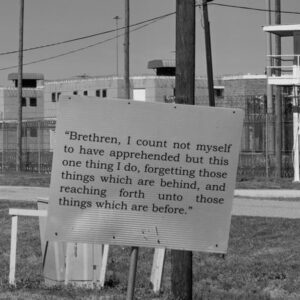
Trevor Noah on Growing Up in South Africa Under Apartheid
"Where most children are proof of their parents’ love, I was the proof of their criminality."
When the doctors pulled me out there was an awkward moment where they said, “Huh. That’s a very light-skinned baby.” A quick scan of the delivery room revealed no man standing around to take credit.
“Who is the father?” they asked.
“His father is from Swaziland,” my mother said, referring to the tiny, landlocked kingdom in the west of South Africa.
They probably knew she was lying, but they accepted it because they needed an explanation. Under apartheid, the government labeled everything on your birth certificate: race, tribe, nationality. Everything had to be categorized. My mother lied and said I was born in KaNgwane, the semi-sovereign homeland for Swazi people living in South Africa. So my birth certificate doesn’t say that I’m Xhosa, which technically I am. And it doesn’t say that I’m Swiss, which the government wouldn’t allow. It just says that I’m from another country.
My father isn’t on my birth certificate. Officially, he’s never been my father. And my mother, true to her word, was prepared for him not to be involved. She ’d rented a new flat for herself in Joubert Park, the neighborhood adjacent to Hillbrow, and that’s where she took me when she left the hospital. The next week she went to visit him, with no baby. To her surprise, he asked where I was. “You said that you didn’t want to be involved,” she said. And he hadn’t, but once I existed he realized he couldn’t have a son living around the corner and not be a part of my life. So the three of us formed a kind of family, as much as our peculiar situation would allow. I lived with my mom. We ’d sneak around and visit my dad when we could.
Where most children are proof of their parents’ love, I was the proof of their criminality. The only time I could be with my father was indoors. If we left the house, he ’d have to walk across the street from us. My mom and I used to go to Joubert Park all the time. It’s the Central Park of Johannesburg—beautiful gardens, a zoo, a giant chessboard with human-sized pieces that people would play. My mother tells me that once, when I was a toddler, my dad tried to go with us. We were in the park, he was walking a good bit away from us, and I ran after him, screaming, “Daddy! Daddy! Daddy!” People started looking. He panicked and ran away. I thought it was a game and kept chasing him.
I couldn’t walk with my mother, either; a light-skinned child with a black woman would raise too many questions. When I was a newborn, she could wrap me up and take me anywhere, but very quickly that was no longer an option. I was a giant baby, an enormous child. When I was one you’d have thought I was two. When I was two, you’d have thought I was four. There was no way to hide me.
My mom, same as she’d done with her flat and with her maid’s uniforms, found the cracks in the system. It was illegal to be mixed (to have a black parent and a white parent), but it was not illegal to be colored (to have two parents who were both colored). So my mom moved me around the world as a colored child. She found a crèche in a colored area where she could leave me while she was at work. There was a colored woman named Queen who lived in our block of flats. When we wanted to go out to the park, my mom would invite her to go with us. Queen would walk next to me and act like she was my mother, and my mother would walk a few steps behind, like she was the maid working for the colored woman. I’ve got dozens of pictures of me walking with this woman who looks like me but who isn’t my mother. And the black woman standing behind us who looks like she ’s photobombing the picture, that’s my mom. When we didn’t have a colored woman to walk with us, my mom would risk walking me on her own. She would hold my hand or carry me, but if the police showed up she would have to drop me and pretend I wasn’t hers, like I was a bag of weed.
When I was born, my mother hadn’t seen her family in three years, but she wanted me to know them and wanted them to know me, so the prodigal daughter returned. We lived in town, but I would spend weeks at a time with my grandmother in Soweto, often during the holidays. I have so many memories from the place that in my mind it’s like we lived there, too.
Soweto was designed to be bombed—that’s how forward-thinking the architects of apartheid were. The township was a city unto itself, with a population of nearly one million. There were only two roads in and out. That was so the military could lock us in, quell any rebellion. And if the monkeys ever went crazy and tried to break out of their cage, the air force could fly over and bomb the shit out of everyone. Growing up, I never knew that my grandmother lived in the center of a bull’s-eye.
In the city, as difficult as it was to get around, we managed. Enough people were out and about, black, white, and colored, going to and from work, that we could get lost in the crowd. But only black people were permitted in Soweto. It was much harder to hide someone who looked like me, and the government was watching much more closely. In the white areas you rarely saw the police, and if you did it was Officer Friendly in his collared shirt and pressed pants. In Soweto the police were an occupying army. They didn’t wear collared shirts. They wore riot gear. They were militarized. They operated in teams known as flying squads, because they would swoop in out of nowhere, riding in armored personnel carriers—hippos, we called them—tanks with enormous tires and slotted holes in the side of the vehicle to fire their guns out of. You didn’t mess with a hippo. You saw one, you ran. That was a fact of life. The township was in a constant state of insurrection; someone was always marching or protesting somewhere and had to be suppressed. Playing in my grandmother’s house, I’d hear gunshots, screams, tear gas being fired into crowds.
My memories of the hippos and the flying squads come from when I was five or six, when apartheid was finally coming apart. I never saw the police before that, because we could never risk the police seeing me. Whenever we went to Soweto, my grandmother refused to let me outside. If she was watching me it was, “No, no, no. He doesn’t leave the house.” Behind the wall, in the yard, I could play, but not in the street. And that’s where the rest of the boys and girls were playing, in the street. My cousins, the neighborhood kids, they’d open the gate and head out and roam free and come back at dusk. I’d beg my grandmother to go outside.
“Please. Please, can I go play with my cousins?”
“No! They’re going to take you!”
For the longest time I thought she meant that the other kids were going to steal me, but she was talking about the police. Children could be taken. Children were taken. The wrong color kid in the wrong color area, and the government could come in, strip your parents of custody, haul you off to an orphanage. To police the townships, the government relied on its network of impipis, the anonymous snitches who’d inform on suspicious activity. There were also the blackjacks, black people who worked for the police. My grandmother’s neighbor was a blackjack. She had to make sure he wasn’t watching when she smuggled me in and out of the house.
My gran still tells the story of when I was three years old and, fed up with being a prisoner, I dug a hole under the gate in the driveway, wriggled through, and ran off. Everyone panicked. A search party went out and tracked me down. I had no idea how much danger I was putting everyone in. The family could have been deported, my gran could have been arrested, my mom might have gone to prison, and I probably would have been packed off to a home for colored kids.
So I was kept inside. Other than those few instances of walking in the park, the flashes of memory I have from when I was young are almost all indoors, me with my mom in her tiny flat, me by myself at my gran’s. I didn’t have any friends. I didn’t know any kids besides my cousins. I wasn’t a lonely kid—I was good at being alone. I’d read books, play with the toy that I had, make up imaginary worlds. I lived inside my head. I still live inside my head. To this day you can leave me alone for hours and I’m perfectly happy entertaining myself. I have to remember to be with people.
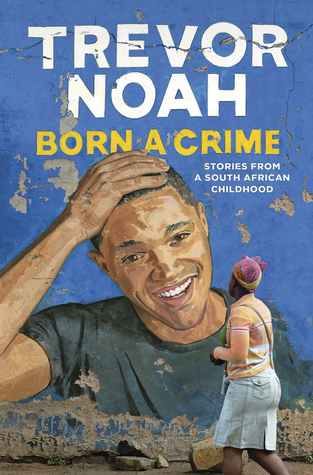
From BORN A CRIME. Copyright © 2016 by Trevor Noah. Reprinted with permission of Penguin Random House.
Trevor Noah
Trevor Noah is a South African comedian, television and radio host and actor. He currently hosts The Daily Show, a late-night television talk show on Comedy Central.









